Feedback from our Teachers
“DEVELOPING HEALTHY BOYS TRAINING”
TRAINING SESSION FEEDBACK
- The most helpful concept was that I, as an early childhood educator, can and must impact how young boys develop a healthy sense of what it is to be a man in a society with norms that make it challenging. In reflecting on this training the quote, “It is easier to build strong children than to repair broken men,” resonates with me.
- I understand more about how boys learn about gender and ways that masculinity and stereotypes became harmful to these young boys as they grow into men.
- I now can to talk with parents and children about gender
- Learning WHY it is important to introduce concepts of gender equality to children at an early age
- The most helpful concept I learned is: Because boys are boys doesn't mean that they have no feelings, because they do and we need to let them cry in order to be healthy boys.
- I now to bring a greater understanding to how some ideas and particularly problem behaviors may have developed and to bring more attention to how many ways there are to be a man.
- It helps me to understand where a lot of the ideas the boys are having come from, and how best to talk about them with those boys. Even when we know they are getting problematic ideas at home, there are ways to talk about them to mitigate the effects.
- I initially thought this training was going to be too long for me to handle. After the first session, I couldn't wait to log back in to each and every session. I gained so much knowledge about the topics we discussed! Thank you all!
- The trainers did great! I loved the way things were presented with respect and everyone was able to express their point of view. One of my best trainings.
- I will be more mindful about raising healthy boys, getting them out of the "man box" so they can develop and feel comfortable in being who they are meant to be
- I will use what I learned in the way I speak to boys and listen to their feelings
- I will make activities in our class more gender neutral and add materials that allow all children to express themselves comfortably in the way they feel and see themselves
- We need to change the way we nurture boys to really decrease the amount of violence in the world.
- As a social worker, I want to utilize this knowledge as I work with boys around aggressive behavior
- I will start with my son by giving him more options and listening to his opinion more
- I will be more aware of the gender terms I use around children and other coworkers
- I will think about how I treat the men in my family
- I learned to give boys permission to be whoever they want to be and to allow them to have feelings, and not stereotype who they are and how they should show up in the world.
- I will create a safe space for boys to feel supported and understood. I will use this same ideology with male co-workers as well.
- I'm taking away a different viewpoint of what it means to "be a man” and the importance of showing a different level of compassion for how boys are raised differently than girls
- I will be more aware of my own biases and make use of intentional role-modeling
- I will find ways to start to have conversations about gender issues with the families we visit. Also, I will use what I learned to support parenting my two boys.
Our trainings are for people of all genders about male gender socialization and the strategies and skills for promoting the development of compassionate, non-violent and equitable boys and men. These highly participatory programs, use personal reflection and cross-gender dialogue to accomplish the following goals:
- Understand the dynamics of male socialization and its impacts on boys and girls, women and men, families and communities.
- Understand how violence and trauma contribute to the construction of dominant forms of masculinity.
- Explore the intersection of masculinities and race, class and homophobia.
- Learn strategies for engaging men and boys and women and girls in the development of healthy non-violent masculinity.
- Practice skills of cross-gender dialogue and build partnerships between men and women for personal and social change.

